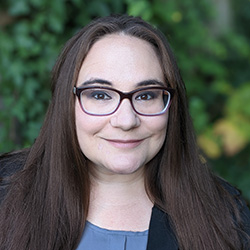How to become a nurse in Ohio
It’s hard to find a career that’s more fulfilling—or more in demand—than nursing.
And Ohio is a great place to start a nursing career. Nursing students in Ohio have their pick of several great universities to begin and continue their nursing education, most of which offer advanced degree options. Columbus and Cleveland, two of Ohio’s largest cities, are home to many highly ranked nursing programs.
Some of the best hospitals and healthcare systems in the country, including University Hospitals Cleveland Medical Center, Ohio State University Wexner Medical Center and Cleveland Clinic, are located here as well.
But where to start? There are seven specific steps you must take to become a registered nurse (RN) in Ohio.
7 steps to start your nursing career in Ohio
Pursuing a career in nursing is a little different for every student. There are many pathways, specialties and work environments to choose from. However, there are seven steps that every prospective nurse in Ohio will go through.
Choose a nursing path.

As you consider the kind of nursing career that’s right for you, some questions to ask yourself include what environment you’d like to work in, what populations you’d like to serve and what hours you’d like to work.
If you have a passion for a certain type of nursing, consider programs that offer the specific education you’ll need to get there. Compare as many Ohio nursing programs as you can to determine which one will help you reach your goals in a timeframe and with the skills that are most important to you.
Complete coursework in infection control and child abuse reporting.

To become a registered nurse in Ohio, you’ll need either an Associate Degree in Nursing (ADN) or a Bachelor of Science in Nursing (BSN). ADNs take two years to complete and allow nurses to enter the workforce sooner. Many students choose this pathway in order to jumpstart their career, going on to complete a four-year BSN later.
Colleen Sirigusa, a 30-year nursing veteran and Clinical Coordinator at Bryant & Stratton College in Solon, Ohio suggests that “students receive a sound foundation in their science courses, pharmacology, math skills, and medical-surgical courses. Many instructors have tutoring hours, there are open lab hours to practice skills, and most schools utilize some form of an NCLEX preparation tool (ATI, or example). One must be committed to the hours necessary to ensure adequate preparation and integrate the practice of NCLEX style questions into their study schedules.”
Take the NCLEX-RN.

Once you’ve earned your degree, the next step is to take the NCLEX-RN exam. This nationally recognized test demonstrates your knowledge and confirms your entry-level skills. A passing score is required on this comprehensive test in order to obtain nursing licensure, not just in the state of Ohio but nationwide.
Get licensed in Ohio.

Nurses need to be licensed to practice. In order to be licensed, prospective nurses must submit receipt of their passing NCLEX as well as fingerprints to the Ohio Board of Nursing for a federal and civilian criminal records check.
Find a nursing job.

Once you’ve passed the NCLEX and received your RN license, you’re ready to begin your career in healthcare. Nurses are in demand in hospitals, schools, clinics, assisted living facilities and many other settings.
If you haven’t already, start building a network of healthcare professionals. Reach out to contacts you create and ask for input about specialties you’re interested in. Look for opportunities to shadow jobs for registered nurses. Keep an open mind and do research to determine what populations you want to serve.
Keep up with continuing education.

Registered nurses in Ohio must complete 24 continuing education units to be eligible to renew their license. The RN licensure period is from November 1 of odd numbered years through October 31 of the following odd numbered year. An example would be November 1, 2021 to October 31, 2023.
Nurses are required to continue their education after graduation because it keeps them up-to-date on the latest advancements in care and treatment techniques. Beyond that, it provides the opportunity to explore other specialties and niches in healthcare.
Maximize your potential.

Beyond continuing education units, many nurses continue their nursing education and pursue more advanced degrees. Because Ohio’s mean wage is lower than the national averages, many nurses opt for certifications in healthcare specialties to give their annual salary a boost.
Acquiring an RN license in Ohio
The Ohio Board of Nursing (OBN) is the regulating body that licenses and certifies nurses in the state. In order to begin the process, nurses in Ohio first need to apply for an Authorization To Test from the OBN. The NCLEX-RN results will be sent to the OBN once they’ve been processed.
The Ohio Board of Nursing advises students to begin this process six to eight months prior to graduation, so begin that process before you graduate if possible. The Ohio Attorney General can provide the most up-to-date list of locations to perform a BCI & FBI background check.
How long does it take to become a nurse in Ohio?
In order to enroll in a nursing program, students need a GED or high school diploma. From here, applicants must also complete approximately 15 to 30 prerequisite classes before they enroll in a nursing program. This can take anywhere from six months to a year. Your college grade point average is a factor in acceptance for most programs, and the application process can be competitive.
Says Sirigusa: “Nursing school is not too be taken lightly, and is not for everyone. Be sure to do your research in choosing the program that will best meet your needs. Courses may be challenging and clinical rotations rigorous. However, one can be successful if they put their mind to it and utilize all the resources available to you.” She stresses that now is a good time to become a nurse in Ohio, and says “Nursing is a very rewarding profession for one to consider, especially for anyone living in the State of Ohio as we currently, we have a shortage of nurses.”
It’s important to choose a program that’s accredited by either the Commission on Collegiate Nursing Education (CCNE) or the Accreditation Commission for Education in Nursing (ACEN). Accreditation ensures that your program has been vetted by professionals and your course content is current on the latest technological and medical advances in the nursing field. Accreditation also ensures you can apply for financial aid and transfer credits if you decide to pursue an advanced degree later on.
Nursing programs include classroom instruction as well as clinical experience. For this reason, they are designed for in-person learning. This also means that most nursing programs are lock-step—that is, they are required to be taken in order and full-time, with some exceptions.
After graduation from a two- or four-year program, nurses will need to apply for an Authorization To Test from their nursing regulatory body (NRB). Applications are processed in the order they are received, so the sooner you apply to test the better because there can be a wait. Most registered nurses, both in Ohio and nationwide, experience a wait of anywhere from 30 to 60 days between graduation and sitting for their NCLEX-RN exam.
Nurses who don’t pass can retake the exam after 45 days. Once a nurse has passed their NCLEX, it should take six weeks to receive their official results. At this point, they’re ready to complete their application for licensing.
The timeline for becoming licensed can vary, but the Ohio Board of Nursing advises students to begin this process six to eight months prior to graduation. The Ohio Attorney General can provide the most up-to-date list of locations to perform a BCI & FBI background check.
The entire process, from program start date to licensure, takes as little as two-and-a-half years and as many as five.
Is Ohio a compact state?
Ohio is a member of the Nursing Licensure Compact (NLC). States that participate in the NLC are part of an agreement that allows nurses to practice in other states with the convenience of only having to obtain one license.
If you’re considering becoming a nurse in Ohio, this is good news for you. It means you can travel or transfer to participating states without having to obtain a license first. The hope is that compact states will expedite the delivery of care and reduce costs for patients, hospitals, insurance companies and nurses.
Being a member of a compact state also gives registered nurses the ability to perform telehealth visits, virtually treating patients from around the country via phone or video chat.
Continuing education for nurses in Ohio
Advancing your education is a requirement for registered nurses in most states, and it comes in two forms: continuing education units and academic programs.
CEs or CEUs must be completed by an organization authorized by the Ohio Board of Nursing. These classes cover a wide range of topics: everything from opioids to gut microbiomes. This is an opportunity for nurses to gain helpful knowledge or preview a specialty that they may be interested in. There are resources available to nurses to earn continuing education units (CEUs), but these stand-alone classes are not the same as pursuing a degree.
Academic programs, on the other hand, can also be counted towards a degree or certificate. These types of specialized training often dive deeper into topics and result in a new credential. Certificates and degrees offered through accredited programs can also be counted toward license renewal requirements, and are weighted more heavily.
If you began your career with an ADN degree, earning a BSN is a logical next step. This degree provides practicing nurses with even more specialized knowledge and increases their earning potential. It places focus on subjects like case management, information management and other leadership-oriented roles.
A Master of Science in Nursing (MSN) can lead to other higher-paying and rewarding jobs for nurses, qualifying them for roles such as Advanced Practice Registered Nurse (APRN). For those interested in advancing the field of nursing and shaping the future of healthcare, a Doctor of Nursing Practice opens doors to advanced leadership and research roles.
Job outlook for nurses in Ohio
The U.S. Bureau of Labor Statistics (BLS) expects the number of nursing jobs in Ohio to grow faster than the national average for nurses. The expected growth for registered nurses nationwide is projected to increase by 5.6% through 2032.
As the population of retirement-age adults increases, so will the demand for nurses. According to the Ohio Department of Job and Family Services (ODJFS), registered nurse is one of the most in-demand occupations in the state.
Median salary for nurses in Ohio
The annual mean wage for registered nurses in Ohio is $79,940, according to the U.S. Bureau of Labor Statistics (BLS). This falls slightly below the national average for RN salaries in the U.S., but Ohio’s lower cost of living means that even nurses who are just starting out should find they’re making a comfortable wage.
Here are salaries for some of the top metro areas in the state:
Find out how to become a nurse in your state
The process of becoming a nurse is different depending on the state in which you are seeking licensure. Each state has different requirements and standards that you should be aware of.
Here are some of the top nursing states in the U.S. and the steps to become a nurse in each:
Requirements for foreign-educated nurses
Ohio requires registered nursing candidates who were educated outside of the United States to have their credentials reviewed, and the Board of Nursing recommends you use the Commission on Graduates of Foreign Nursing Schools (CGFNS)’s Credential Evaluation Service.
Your past education standards, grades, and other factors will be reviewed to determine if you meet the criteria needed for licensure in Ohio. Test scores are not needed to submitted to the CGFNS, but you will need to pass the NCLEX exam.
Make sure and double-check with the Board of Nursing to ensure your past experience sets you up for licensure as a nurse in Ohio.
Useful organizations to know
The Ohio Board of Nursing is the licensing authority for nurses in the state of Ohio. Healthcare workers can apply for and renew their licenses online through this site.
NCSBN is a not-for-profit organization whose U.S. members include the nursing regulatory bodies in the 50 states, the District of Columbia and four U.S. territories. It is the developer and owner of all NCLEX exams.
NCLEX, which stands for the National Council Licensure Examination [for] Registered Nurses (RN), is a computer adaptive test nursing graduates are required to pass in order to be licensed as a Registered Nurse in the US and Canada.
The Ohio Nurses Association is a strong community of registered nurses who are dedicated to protecting and advancing the profession and impacting healthcare in Ohio.


With professional insights from:
Clinical Coordinator, Bryant & Stratton College, Solon Campus




